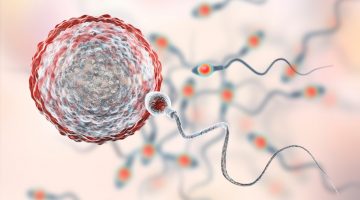Fertility 101
The A, B, Cs of infertility, improving your fertility and seeking the help you need.
What is Infertility?
Infertility is most often defined as the inability to conceive after 12 months of regular unprotected intercourse. However, many factors including age, medical history, and testing can lead to a clinical diagnosis of infertility long before a year of trying to get pregnant. Chances are, if you’re reading this, it’s a good time to seek help. Infertility affects approximately 1/8 of the population. Infertility does not discriminate across any demographic or ethnic boundary and has many potential causes.
The Causes of Infertility
Special Considerations
Preparing for Treatment
Improving Your Fertility
The simple guide to improving your sperm, egg, embryo, and uterine quality.
Unlike many disorders and diseases, infertility often does not advance in a linear progression. Although it is true that fertility generally declines with age for both men and women, simple lifestyle changes can have drastic effects on sperm quality, motility, and count, as well as egg quality, ovulation, uterine lining, and the overall reproductive environment.
Infertility, though often regarded as a disease in and of itself, is a diagnosis often connected to underlying issues of physiological health and wellness. This provides each and every person struggling to conceive with an incredible opportunity to take back their fertility and improve the chances of conception and healthy pregnancy.
While many with the proper approaches to optimizing their fertility will still need assisted reproductive technologies, some will not. We recommend each and every one of our clients follow our ABC’s of improving fertility to increase the odds of a successful pregnancy naturally, while helping to improve the outcome of any treatment needed. Ideally, these lifestyle changes should be made for three months to see their full effect.
Basic Female Fertility Testing
Blood Work: Blood type and Rh, Antibody Screen, CBC (complete blood count), CMP (complete metabolic panel), Varicella, AMH, Rubella IgG, TSH, Prolactin, Testosterone, Vitamin D, HIV 1 & 2 Antibody, RPR, Hep B surface antigen, Hep C Virus Antibody
Imaging: Hysterosalpingogram (HSG), Saline infused Sonohysterogram / Hysterosonogram (SHG)
Basic Male Fertility Testing
The Process
Getting the Help You Need
Trying to conceive and maintain a healthy pregnancy can be incredibly stressful. We’ll guide you every step of the way to ensure that you are prepared and taking every step necessary along the way!
-
Step 1
Schedule Your Consultation
Your first official step is scheduling a consultation. Consultations can be done in-person at one of our offices or by phone, FaceTime or Skype.
-
Step 2
Get Prepared
There is a lot you can do to improve your fertility. Incorporating a few new tricks into your life now can greatly improve the odds of conceiving naturally or with assisted reproductive technologies like IUI and IVF. While some wait until their consult to get started, many changes can be started now and are best if incorporated for at least 90 days prior to treatment. We also recommend tuning into our twice-weekly Facebook Lives on Sunday (in English) and Thursday (in Spanish), both at 8 pm EST.
-
Step 3
Develop Your Plan
During your consult, you’ll work with one of our fertility specialists to develop the perfect plan for you. If you’re having an in-person consultation, it’s also a great time to have any necessary testing done.
-
Step 4
Start Your Treatment
After developing your plan, most people begin treatment within a month or two of their consultation. Of course, sometimes life happens and people delay, but due to the significant factor age plays in fertility it is often better to get started sooner rather than later.




